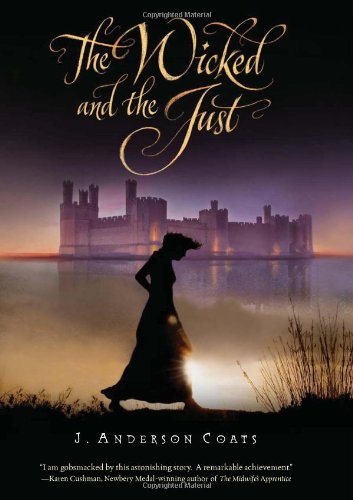The Wicked and the Just
Cecily’s father is the former lord of Edgeley Hall, but he lost his home when his brother returned from the Crusades. He accepts a position as a burgess of Caernarvon in Wales. Cecily is none too pleased about the distant move, which is both unexpected and irritating. Cecily takes her rage out on Gwenhwyfar, the servant in her new home. Though Gwenhwyfar and Cecily are the same age, their cultural backgrounds and different stations in life are a barrier that is infrequently crossed.
Part of the reason that Cecily’s father has been sent to Wales is to help squelch rebellion among the natives. His specific task is collecting taxes from the millers of Caernarvon—taxes that the Welsh feel are unfair. When famine strikes, both the English and the Welsh populations go hungry, and the Welsh rebel. The burgesses of Caernarvon cannot keep the rebellion down, and Cecily finds herself dependent on the servant she treated so cruelly.
There’s more to this novel than can easily be encapsulated in a brief plot summary. At times, the characters and scenarios feel so contemporary that I could easily imagine modern teens in the same situation. I appreciated the realism of the characters who were not consistently good, bad, or likeable. In keeping with the popular dystopian themes in contemporary literature, it’s young people who are driving the rebellion, and young people who are seeking justice where justice is due. The main difference: this is 13th-century reality rather than a near-future dystopia.










